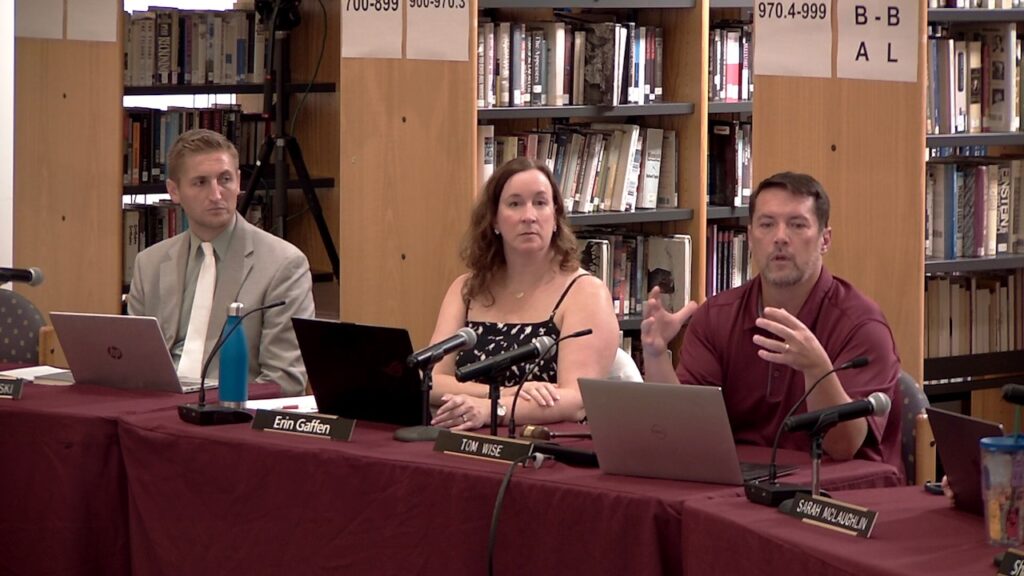Reading, MA — Reading’s Director of Development, Andrew MacNichol, sat down with the School Committee on Thursday to review the MBTA Communities law and what it may mean for the Reading Public Schools. MacNichol explained that the law, passed in 2021, requires that all 177 communities in the Boston metro area confirm that they have a district of reasonable size where multi-family housing is zoned by right by the end of 2024. What size the area needs to be is determined by each municipality’s unique characteristics.

MacNichol further noted that Reading, as a commuter rail community, will need to provide zoning that allows multi-family housing by-right in forty-three acres of town, half of which needs to be within half a mile of the depot. MacNichol reported that currently, no area of Reading complies with the law.
MacNichol was quick to point out that this law only affects what is zoned for, not what will or needs to be built. “[The law] only impacts new development, not existing [development],” MacNichol shared. “There is no requirement to build units, only create zoning for them,” he continued.
MacNichol also stated that his department plans to propose appropriate zoning regulations to Town Meeting for approval in April.

MacNichol shared with the committee that school enrollment was one of the areas of greatest concern listed by residents on an online survey designed to help engage residents in the process of developing the new zoning. School Committee chair Thomas Wise shared that, while enrollment has been decreasing in recent years, the greater issue is the programming that is required for students of need and the space to accommodate those programs. “It’s not just the numbers that matter, it’s the needs that matter,” Wise stated.
School Committee Member Carla Nazzaro followed this up, stating her belief that if the zoning is changed, the development will come as well. She also noted that as the town is preparing to potentially build a new elementary school, knowing the impacts of the new zoning could be crucial. Member Erin Gaffen agreed, “It’s the huge unpredictability factor that makes me uneasy.”
The School Committee will continue to partner with the Development staff as the new zoning rules are shaped.

The committee also considered Superintendent Thomas Milaschewski’s draft goals for the coming year. Milaschewski shared three primary goals; one relating to student learning, one revamping secondary math pathways, and one around the continued development of data systems and practices to determine progress. Committee member Shawn Brandt offered his approval of what he referred to as “measurable and quantifiable goals.” However, he also suggested that development of the new elementary assistant principals should be included as well.
Milaschewski noted that the goals, especially in the area of student learning, are “lofty, but achievable,” stating that he expects to be held accountable for student outcomes such as meeting all Department of Elementary and Secondary Education and MCAS achievement and growth targets as well as increasing the percentage of students taking advanced coursework at Reading Memorial High School (RMHS). Final approval of the superintendent’s goals will be voted on at an upcoming School Committee meeting.
The School Committee voted 5-0 to approve updates to the RMHS student handbook and had a discussion about streamlining their meetings.
The School Committee adjourned at 8:25 pm.
